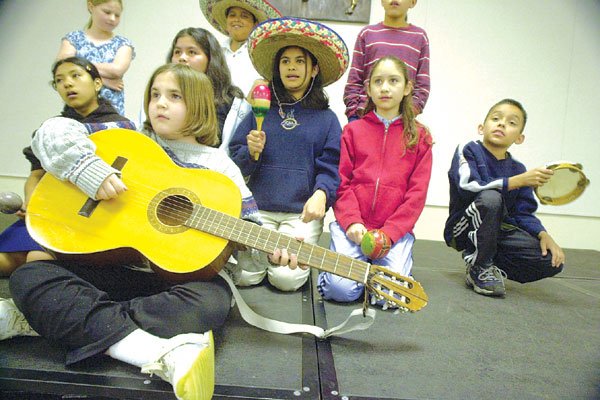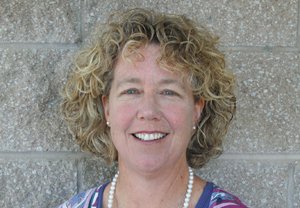GILROY
– Music educators in Gilroy Unified School District will present
a petition, signed by teachers, parents and other supporters, to
school board trustees in May as part of a lobbying effort to ensure
music curriculum is not usurped by the state’s recent emphasis on
academic accountability, or cut du
e to the ongoing budget crisis.
GILROY – Music educators in Gilroy Unified School District will present a petition, signed by teachers, parents and other supporters, to school board trustees in May as part of a lobbying effort to ensure music curriculum is not usurped by the state’s recent emphasis on academic accountability, or cut due to the ongoing budget crisis.
Gilroy Unified School District says the music program is safe, but adding to music supporters’ concerns is the district’s kindergarten through fifth-grade elementary school format which will be implemented districtwide starting next school year. The change means that sixth-graders will no longer receive the half-hour a week of music instruction given to students in fourth through sixth grades.
“What districts don’t recognize is that test scores will reach a ceiling, especially without a music curriculum,” music teacher Gretchen Vandenberg said. “There’s ample evidence that shows music improves long-term memory and integrates the mind more than any human activity. Music turns the brain into a mind.”
Vandenberg and others started circulating the petition last week. The document underscores the role music can play in the pursuit of academic excellence and calls for a commitment by the district to make music education available to every child.
Superintendent Edwin Diaz is quick to defend the district’s commitment to music education. Diaz points to the list of 45 district positions cut for next year due to the state’s $35 billion revenue shortfall.
“None of those positions are music teachers,” Diaz said.
Diaz said when sixth-graders attend middle schools next year, they will be eligible to take part in band and choir as electives. An inside-the-classroom music curriculum has not yet been designed.
“The (middle school curriculum) task force is looking at that,” Diaz said.
Another promising factor for music education in GUSD is that it is partly funded by California Lottery revenue, a steady income stream that is not impacted by state budget cuts.
Vandenberg, however, said budget issues did lead to one part-time teacher being laid off. And, the role of the GUSD’s music program administrator is not clear for next year. Jim Gama, who currently fills the position, lost his principal’s position at Community Day School for next year due to the budget crisis.
“That concerns me,” Vandenberg said. “Jim was a very supportive administrator.”
Gilroy High School band director Joey Fortino has mounting concerns, too. Fortino, in his sixth year at the school, recalls one or two “superstar type” musicians feeding into his program each year. In the last few years he hasn’t seen any.
“The average students now compares to the average student back then, but those amazing musicians with highly advanced skills aren’t here anymore. They have to be developed,” Fortino said. “It makes it harder to replace talent that leaves to graduation.”
Fortino and Vandenberg believe the decline in musicianship started during the last state budget crisis in the mid 1990s. Before then, all GUSD elementary students received one half hour of music class each week during regular school hours. After the budget crisis, only fourth through sixth-graders did.
Extracurricular programs for students of all ages, like Lori Franke’s violin program at Antonio del Buono, are still going strong. However, such programs rely on grants and fund raising efforts to be sustained.
So far, the number of students wanting to enter the GHS band and choir program has not slipped, but Fortino and Vandenberg wonder how long that will hold up.
“Boys have to know before the fourth grade that it’s OK to sing,” Vandenberg said. “After fourth they think its girls’ stuff.”
Similarly, Fortino says if students don’t pick up an instrument as a child, it’s rare they have the desire to learn an instrument as a teen.
“Older kids don’t want to be bad at something, and you’re going to be bad when you start playing an instrument,” Fortino said.
Fortino said he and other music educators at GHS have discussed adding a music appreciation class to the school’s course schedule. The class could cover music history, teach skills for particular instrument and study music theory, among other things.
A similar Advanced Placement course is offered now, Fortino said, but only on an every-other-year basis due to lack of student demand.
Fortino hopes the district uses the academic standards set by the state when it develops a middle school music curriculum.
“But it will be hard to expect older students to know what they’re supposed to know when they’re not getting the standards taught to them in first through third grade,” Fortino said.
Most music educators don’t anticipate the state’s ever-increasing demands for improvement on standardized tests to allow for expanded music curriculums. But for Rucker kindergarten teacher Sharon Albert, music will always play a role in math, reading and other core academic courses.
“My kids are learning how to spell and learning math concepts to music,” said Albert, a GUSD teacher since 1969. “Music is a real hook into one’s mind.”















